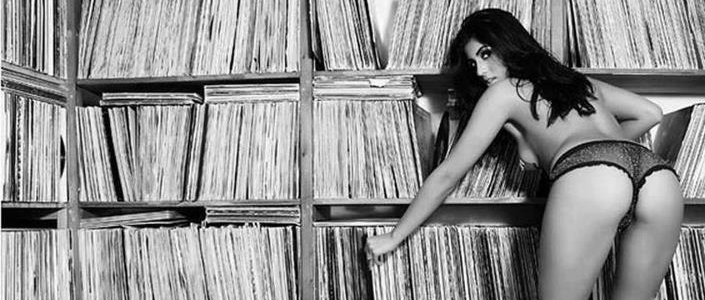
Whether sampling from vinyl or queuing up sounds from your favorite synth, it can be difficult to find the right sound for your productions. There are tons of beats out there that sound decent, but only a few that really stand out, and mostly it's because of the sounds that were used. If you find the right sound for your beat, the rest should easily fall into place.
This is a look at finding the right sounds for your beats.
Sampling Is Either Hit Or Miss
As a sample-based producer, I spend a lot of time digging through my vinyl and other audio sources in order to find that special something. That sample that will just take my beat to the next level.
Unfortunately, it's not that easy.
This is why you always hear about producers going digging at record shops, or even today, digging online for hours because with all of the songs out there, there's just too much ground to cover. However, one of the most overlooked aspects of sampling is that it's not just about finding the right sample, but rather the right sound.
For example, some producers will take a sample from a famous song and just loop it, maybe even chopping it a bit to create something new, but mostly it's a basic loop. Some producers do just loops - from the melody to the drums and everything in between! But if it works, who cares, right?
The thing is, all the really good samples (loop-based) have pretty much been sampled already. This is why I always listen for sounds in between the loops. So instead of sampling a ready-made 4-bar loop from a famous Jazz musician, I will instead take just a short snippet after, before, or in the middle. I repeat this process until I have different snippets of that song recorded and I'm ready to go.
Once I have a bunch of snippets loaded up on my pads, the sky's the limit. You see, with a loop you're stuck working with that sample, whereas with snippets you have a much broader area that you can cover, so it makes making beats much more fun. You can use the snippets as is, or chop them up even more. Either way, at least you're doing much more than just looping something.
This Also Applies To Any Kind Of Sound
But this scenario doesn't just apply to sampling, as it's also a big factor when looking for synth sounds to play.
Let's say you have synth and there are some instruments loaded up, what do you do? I have noticed a trend with new beatmakers where they use whatever stock sounds come with a program, and it's to the point where even seasoned producers are using what I call "mad cheese". I think part of it is that these people are too lazy to find a nice synth sound, or they actually think the cheesy sounds are good.
When I first started making beats, I didn't have much to work with but I used what I had to still come up with some really good beats. Working with a cheap Casio keyboard and some basic soundfonts, along with whatever I had in the General MIDI setup, I made it sound good. The sounds weren't great, so what I did was record my tracks and then I would go back and either switch the instruments out via MIDI with something better, or I would alter the audio so that it sounded grittier.
Final Thoughts
So if you don't have much to work with by way of sound selection, there's always a way to make it sound better. For those that are using stock sounds, the sounds today are getting better, but you should still alter them so that they don't sound like stock sounds. Your beats will be much better.
If you're digging for samples, don't worry about finding that certain loop from that certain artist. I managed to take small sample snippets from a Kenny Rogers record and made the beat sound really dark. The sky's the limit!
Further Reading About Sampling
Last edited:


